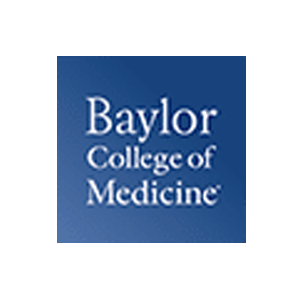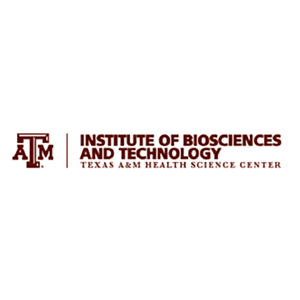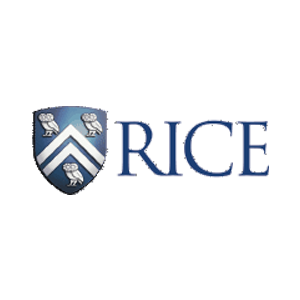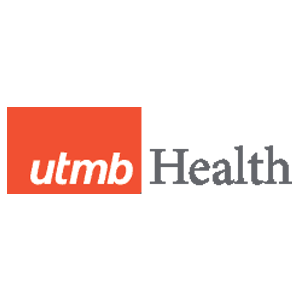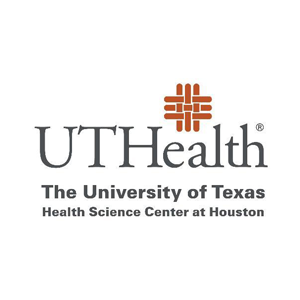
Computational Cancer Biology Training Program (CCBTP)
The Computational Cancer Biology Training Program brings together the principles of computational and physical science with cancer biology in research, and possibly even the clinic, to develop an emerging generation of postdoctoral computational cancer biologists with a unified quantitative outlook on the problems presented in fundamental cancer research.
This 5-year training grant renewal was awarded effective December 1, 2016.
Funding Source:
Cancer Prevention and Research Institute of Texas (CPRIT) RP170593
Program Director:
Dr. B. Montgomery Pettitt
The University of Texas Medical Branch at Galveston.
Program Administrator:
Melissa Glueck
Gulf Coast Consortia
The next Call for Postdoctoral Applications will be in Spring 2020. Applicants must be able to begin their appointments on July 1, 2020.
Applications will only be accepted once the Call is open. Deadlines will be posted here.
However, all application information–including instructions, application forms and mentor recommendation forms–is located below for your reference.
The complex interplay among often disparate clinical, laboratory, and computational science applications impacting cancer medicine and biology demands innovative and interdisciplinary methods of cancer research. Cancer biologists and clinicians must collaborate with leading researchers in mathematics,computational science and engineering to more effectively study cancer and develop cutting edge tools that will lead to creative solutions.
This postdoctoral training program in Computational Cancer Biology (CCBTP) brings together principles of computational and physical science with basic and clinical cancer biology to develop an emerging generation of computational cancer biologists with a unified computational/quantitative outlook on the problems presented in fundamental cancer research. Our goal is to increase the number of skilled, multidisciplinary cancer researchers in Texas who are uniquely able to integrate the tools, ideas, and materials of computational science and biology.
CCBTP training and activities are weighted towards cancer-driven bioscience as opposed to purely clinical medicine.
Postdoctoral fellows are required to:
- Have dual faculty mentors from both cancer biology and computational areas; both mentors must be members of the CCBTP Training Faculty at the time of the application (or have applied to join the training faculty before the application due date and have been provisionally approved);
- Complete a 2-4 month mini-sabbatical or internship in the secondary mentor’s laboratory;
- Mentor a summer undergraduate intern during a 10-week program;
- Complete an approved Responsible Conduct of Research course as a postdoc, a grantsmanship workshop, professional and career development workshops including mentoring, an annual Independent Development Plan (IDP), and any coursework assigned to strengthen skills in areas in which the postdoc was not previously trained;
- Attend and present at required seminars, symposia, and journal clubs; attend and present at our own CCBTP annual trainee conference (if chosen), Keck Annual Research Conference, the CPRIT biennial conference, and a national conference of comparable scope to an American Chemical Society national meeting.
Postdoctoral fellows receive:
- 12 month fellowship, with the opportunity to compete for re-appointment for a second year, if progress is satisfactory;
- NIH-level postdoc stipend of $50,004 or higher (depending on the years of science-related experience since receipt of the doctoral-level degree);
- partial support for fringe benefits and/or for out of pocket expenses for trainee’s own health insurance; and
- travel funds for pre-approved travel.
Note: the primary mentor or mentor’s department is responsible for the remainder of the fringe benefits, and stipend supplementation to reach the postdoc’s current pay level (if applicable; this may be paid from any funds, including federal).
We welcome applications from all qualified trainees, regardless of ethnicity, race, or disability status. All GCC member institutions are ADAAA compliant and have offices of disability support services that provide accommodations and support services to trainees, faculty, staff, and visitors.
For any questions not answered by the information on this web page, please contact administrator of the CCB Training Program, Melissa Glueck at glueck@rice.edu.
Computational Cancer Biology Training Program Curriculum
1. Responsible Conduct of Research: Per CPRIT policy, all postdocs must fulfill the NIH Responsible Conduct of Research course training requirements. Even if a trainee has completed a course as a graduate student, or as a postdoc more than four years ago, per NOT-OD-10-019 the NIH requires that the trainee re-take an ethics course that meets all of its requirements. Online courses such as CITI alone do not meet the requirements.
Trainees must provide the GCC with a transcript, certificate, or other form of proof of completion of an approved course. If a trainee has not taken a course that meets all of the requirements (including time), s/he is required to complete it within the first year of appointment. The following are approved Responsible Conduct of Research courses:
1. BCM: Ethics for Postdocs
2. UTHSC-H: Postdoctoral Ethics course (part of postdoc certificate)
3. Rice University: UNIV 594 Training in the Responsible Conduct of Research; offered in the Fall semester
4. MDACC: Postdoctoral Ethics course
5. UTMB: MEHU 6101 Ethics in Scientific Research – offered twice per year for 2 consecutive days each in Spring and Fall
6. UH: BIOL 6120 Responsible Conduct of Biological Research, or take the UTMB course
7. IBT-TAMHSC: take the UTMB course.
2. Grantsmanship training: all CCBTP postdocs will have to complete a workshop on writing grants. Specifics will be communicated directly with the trainees.
3. Coursework: Depending on their background and previous coursework, coursework may be assigned to individual postdocs in order to strengthen skills or knowledge. Not all postdocs will be assigned coursework. The postdoc will be informed of the course with their offer email.
For instance a trainee with a biological or medical background may benefit from course work in computational science areas such as:
Probabilistic and Statistical Methods in Bioinformatics (UTMB BMB 6240)
Advanced Machine Learning (UH COSC 7362)
Advanced Software Engineering (UH COSC 7350)
Cloud Computing (UH COSC 6376)
Computational Mathematics for Quantitative Biomedicine (BCM-QC-6801)
Computational Molecular Bioengineering/Biophysics (RU BIOC 589, BIOE 589)
Bioinformatics: Sequence Analysis (RU COMP 571)
Bioinformatics: Network Analysis (RU COMP 572)
Fundamentals of Medical Imaging (RU ELEC 585 or UH COSC 6370)
Introduction to High-Performance Computing (UH COSC 6365)
Introduction to Machine Learning (RU ELEC 578)
Medical Imaging and Signal Pattern Recognition (UTHSC-SBMI: BMI 6331).
For those coming from a mathematical or physical science background, essentially every campus involved has appropriate courses in biochemistry, cell and/or molecular biology, and the Steering Committee might recommend offerings such as Intro to Systems Biology (RU SSPB 502).
For those seeking more advanced cancer-specific didactic work, they might choose from:
Cancer (BCM-CC-6101)
Bioinformatics and Genome Analysis (BCM-GG-6301)
Translational Cancer Biology (BCM-CC-6201)
Introduction to Molecular Carcinogenesis (BCM-CC-6302)
Cancer Epidemiology (UTH PHM 2745)
DNA, Mutagenesis, Replication, and Environmental Toxicology (UTMB BMB 6209)
Genomics, Proteomics and Bioinformatics (UTMB BMB 6208)
Cell Signaling for Growth, Differentiation, Death (UTMB BMB 6316), or
Cancer Biology (RU BIOC 560).
Please note that this training grant was renewed in December 2016 with a new training faculty.
Faculty members on the previous grant/new faculty who are sponsoring a candidate in the current round of applications will find the instructions on how to request joining the renewal faculty on the Faculty Eligibility page.
CCBTP fellows meet every 4th Friday of the month from 3:00-3:50 pm, prior to the Keck Seminar, in BioScience Research Collaborative (BRC) Suite 172, 6500 Main St. @ University. Fellows from UTMB are expected to attend these meetings in person.
Fellows will chose the date(s) for which they will coordinate the speakers and topics. Any changes due to holidays, room or speaker availability will be communicated by email.
Remaining meeting dates for 2019: no July meeting, special date August 2 (undergrad poster session 9:00-2:00 pm), special date September 6, no October meeting because you are presenting at the GCC Keck Annual Research Conference on Oct. 11, and Nov. 22. For the December 27 meeting (during the holidays), fellows will choose an alternate date in advance.
Meeting dates for 2020: Jan. 24, Feb. 28, March 27, April 24, May 22, June 26 (with summer undergraduates), no July meeting, special date August 7 (undergrad poster session 9:00 am-2:00 pm), Sept. 25, Oct. 23 (or the date of the GCC Keck Annual Research Conference, at which you will present posters on your CCBTP project). For the Nov. and Dec. meetings (during the holidays), fellows will choose an alternate date in advance. The GCC Keck Annual Research Conference may take place in early Nov., but that would be announced far in advance.
Previously appointed CCBTP fellows are always welcome to attend.
FACULTY ELIGIBILITY
Both mentors must be tenure-track faculty, and either members of the CCBTP training faculty at the time of the application, or have requested joining the faculty and been provisionally approved as potential faculty prior to their trainee’s application. Please note that membership in the Gulf Coast Consortia or in one of its other training programs does not automatically confer membership in the CCBTP program. Details about how to request joining the CCBTP faculty are below.
Primary mentors are usually expected to have prior training experience, e.g. having previously been a primary or secondary mentor in a training program. Faculty may only be a primary mentor for one CCBTP fellow at a time. If a faculty mentor is already a primary mentor to a current CCBTP trainee, s/he may sponsor a new applicant (as primary mentor) shortly before the current trainee’s appointment will end, so that the two trainees’ appointments will not overlap.
Junior faculty who have secured external funding but have only a limited training record may be considered as secondary mentors initially, with a required commitment to participate in our half-day mentor training workshop.
Requests to join the CCBTP training faculty:
Faculty interested in sponsoring a candidate in the upcoming round should apply to join the training faculty two weeks before the application due date. Requests to join the faculty are considered only when they are sponsoring a candidate in the current call for applications.
Please contact the CCBTP Steering Committee member from your institution (see separate CCBTP Steering Committee section), as a member must nominate you. Email the Committee member the following items, and copy Melissa Glueck at glueck@rice.edu no later than two weeks before the application due date:
- a current 5-page NIH Biosketch (in Word format) including peer-reviewed funding; faculty are expected to be PI on an NIH R01 grant or equivalent peer-reviewed federal funding, and to have a training history;
- a few sentences about how the faculty’s research interests relate to the goals of the CCBTP;
- whether you wish to sponsor a postdoctoral candidate as primary/secondary mentor; and the name and institution of the proposed co-mentor.
This will be forwarded to the Program Director for consideration. The faculty member will be reviewed and notified of preliminary approval to join prior to the application due date.
Should his/her applicant be appointed to a CCBTP postdoctoral fellowship, only then the faculty member will be added to the CCBTP training faculty. If his/her applicant is not appointed, then the faculty member will not be added to the training faculty at that time.
APPLICANT ELIGIBILITY: Applicants:
- May be US or Dual Citizens, Permanent Residents who have already received their Green Card, or Foreign Nationals with a current visa that allows them to work as a postdoc;
- Must already have their doctoral degree by the application due date; those who have completed the requirement for their PhD but will be awarded it at a later date must supply a letter from their institutional verifying this;
- Must be employed by one of the 8 participating institutions (BCM, Rice, UH, UTHealth, MDACC, UTMB, IBT-TAMHSC, and Methodist);
- Must be employed in the lab of their primary mentor on this application (not in another lab), or have a job offer in hand and be in a position to start the job soon after the interview;
- Must live and conduct their research in Texas during the training.
The Gulf Coast Consortia is committed to providing equal opportunity in training for individuals with disabilities and individuals from racial and ethnic groups who are currently under-represented in STEM fields. We welcome applications from all qualified trainees, regardless of ethnicity, race, or disability status. All GCC member institutions are ADAAA compliant and have offices of disability support services that provide accommodations and support services to trainees, faculty, staff, and visitors.
REQUIRED APPLICATION MATERIALS
All materials are due by the application due date, including letters of recommendation and transcripts.
From mentors:
Requests to join the CCBTP faculty, if one is not already (see Faculty Eligibility above for details), are due two weeks before the application due date.
Online Mentor Recommendation form: one form from the primary mentor AND and one from the co-mentor/secondary mentor. Mentors are to individually email the completed form directly to glueck@rice.edu (link to forms).
From trainee/applicant:
Prior to applying, all trainee applicants must contact the Steering Committee member from the applicant’s institution (see list on the website), to ensure that the proposed project is relevant to this training program.
- Online Trainee Fellowship Application (link to forms) – please ensure that your mentoring plan clearly describes how the two mentors will collaborate to give the trainee training in both of their disciplines, and what skills or techniques the trainee will learn from each
- 2 Letters of Recommendation from people other than your mentors. They should email the letters directly to glueck@rice.edu. The letters do not have to be on letterhead, but must include title, institution, and contact information for the person writing the recommendation.
- Current resume or Biosketch (in Word or PDF format) outlining your academic history and professional work experience: email to glueck@rice.edu.
- Current Proof of US Citizenship (birth certificate or passport), Permanent Residency (Green Card), or work visa for the United States: email a PDF scan to glueck@rice.edu. You must already have a current work visa to be eligible to apply.
- Transcripts: official copies preferred, but unofficial copies accepted. If the transcript is in a foreign language, you must submit an English translation. Email glueck@rice.edu the following as PDFs:
- Undergraduate transcripts from all institutions you attended
- PhD or MD course transcript: A transcript should include a list of courses taken and the grades/marks received. If the date you received this diploma is not on the transcript, supply a PDF scan (not photo) of your PhD diploma with the date on it. This is used to verify the stipend level you will receive.
Interviews:
Selected candidates will be invited to an interview on one day, which both mentors are expected to attend. Here is the format:
Candidates will make a brief oral presentation (maximum 8 minutes, maximum 6 PowerPoint slides plus title slide; do not include movies), then answer questions from the committee. If the committee interrupts the presenter to ask a question for clarity, then the “clock” will stop while it is being answered; you will always have 8 minutes.
Your presentation should provide an overview of your proposed research project, focusing on the first year. It should address the following:
- the interdisciplinary nature of the project and approached you propose to use, emphasizing quantitative aspects;
- features of the project that you consider particularly novel and/or innovative; and
- the importance of your project to the broad area of computational science and cancer biology This need not be lengthy or highly detailed but it should be explicit. Often this is obvious to you and others in your specific area, but it may not be clear to the diverse, interdisciplinary Steering Committee that is reviewing you.
Your presentation should also outline the mentoring plan, and explicitly describe the roles that both your primary mentor and co-mentor will play in the plan as well as the proposed research. In particular, the committee is interested in hearing how the two mentors together enable you to conduct research that could not be accomplished with either alone. You may also comment on how this fellowship would enhance your training and career development.
We will provide the laptop for the presentation. Candidates should email a PDF of their presentations to glueck@rice.edu by 5:00 p.m. the day before the interview, and bring a backup on a USB drive in a PC compatible format.
CCBTP Summer Undergraduate Fellowship in Computational Cancer Biology
Applications for the Summer 2020 program will open on December 1, 2019.
All application materials are due by Friday, January 31, 2020.
Program dates will be June 1-August 7, 2020.
Funded by Cancer Prevention and Research Institute of Texas (CPRIT) RP170593
Our Computational Cancer Biology Training Program offers selected summer research undergraduates the chance to work one-on-one in labs with postdoctoral fellows who have mentors at the interface of two different research disciplines: one computational and one biological. This unique program offers you the opportunity to gain an interdisciplinary outlook on the problems presented in fundamental cancer research.
You will be matched for a research experience in one of the participating labs of the Gulf Coast Consortia, which is comprised of multiple institutions (see list at the bottom of this page) in Houston and Galveston, Texas, according to your interests, previous knowledge and/or experience, and the availability of positions. You will work full time (~40 hours/week) during this 10-week period on an ongoing project in the lab, learn lab protocol and techniques, attend workshops (including but not limited to how to apply to graduate school or medical school, research ethics, constructing effective abstracts, scientific reports, and research presentations), attend lab tours, and prepare an abstract, a final report and present a poster on your project at the end of the program.
Who is eligible?
• Rising sophomores, juniors, or seniors majoring in either quantitative or biological sciences, such as:
- statistics
- computational & applied math
- computer science
- biology
- biochemistry
- bioengineering
- chemistry
- physics
• Preferred: students interested in interdisciplinary research and in pursuing graduate or medical school; those having relevant coursework, and computational/programming knowledge and skills.
• We particularly encourage applications from members of diverse backgrounds including under-represented minority students, students from economically disadvantaged backgrounds, and students with disabilities.
• US Citizenship or Permanent Residency required. We regret that visa holders are not eligible to apply.
What is the stipend?
• $5,000 stipend total for the 10-week full-time summer research experience + up to $1,000 reimbursement for travel and housing (if needed).
What is the application process?
Please prepare and submit your application package to include the following material:
• Resumé: include your contact information (i.e. cell phone number), the name of your college or university, your year and major, and current GPA; list all previous jobs you have had (including jobs in a lab, if any), and any computer language/programming courses taken or experience you have.
• One-page statement about why you are interested in computational cancer biology, what you hope to gain from this summer research experience, and your preference for a ‘wet’ lab or a computational lab (NOTE: the availability of ‘wet’ labs is limited, therefore your choice may not be guaranteed).
*Statement format: 11 pt, single spaced, 1” margins; include your name at the top.
• Academic Transcripts from all undergraduate institutions attended, including course enrollment in the current semester. Unofficial copies are acceptable. Note: those students chosen for the program will be required to submit a transcript with Fall 2019 grades, and Spring 2020 course enrollment.
• 2 letters of recommendation: One must come from a science or math professor. The other may be from an advisor, counselor, mentor, or employer with whom you worked for 2+ months within the past four years. Letters must be emailed directly from the recommender to Vanessa Herrera at herrera@rice.edu.
All application materials, including transcripts and recommendation letters, must be received on or before Friday, January 31, 2020 by Vanessa Herrera at herrera@rice.edu. All applicants will be notified of an acceptance decision no later than March 6, 2020.
For more information contact Vanessa Herrera at herrera@rice.edu.
The Gulf Coast Consortia administering this program is comprised of Baylor College of Medicine, Rice University, University of Houston, UT Health Science Center at Houston, UT Medical Branch at Galveston, UT MD Anderson Cancer Center, and the Institute of Biosciences & Technology of Texas A&M Health Science Center.
B. Montgomery Pettitt, Program Director
The University of Texas Medical Branch at Galveston
Elmer Bernstam
The University of Texas Health Science Center at Houston
TBA
Baylor College of Medicine
Ioannis Kakadiaris
University of Houston
Lydia Kavraki
Rice University
David Tweardy
The University of Texas MD Anderson Cancer Center
TBA
IBT-TAMSHC
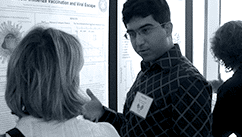
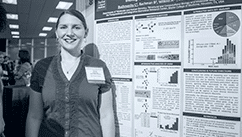
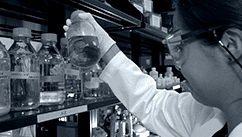
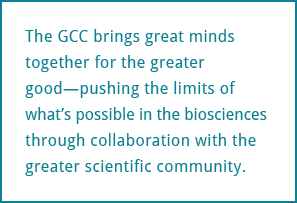
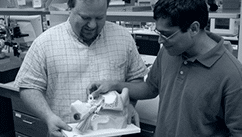
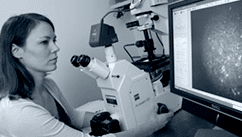
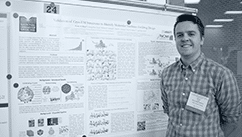
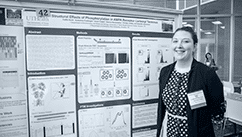
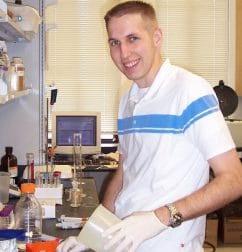
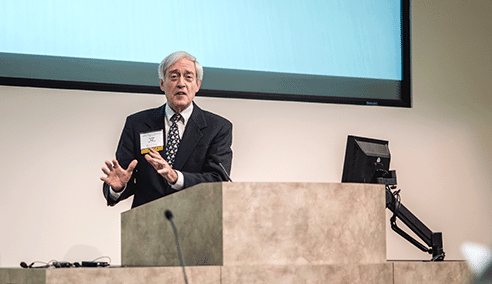

The Gulf Coast Consortia is committed to providing equal opportunity in training for individuals with disabilities and individuals from racial and ethnic groups who are currently under-represented in STEM fields. We welcome applications from all qualified trainees, regardless of ethnicity, race, or disability status. All GCC member institutions are ADAAA compliant and have offices of disability support services that provide accommodations and support services to trainees, faculty, staff, and visitors.
For any questions not answered by the information on this web page, please contact administrator of the Computational Cancer Biology Training Program, Melissa Glueck at glueck@rice.edu.
Last updated 11/6/2019


